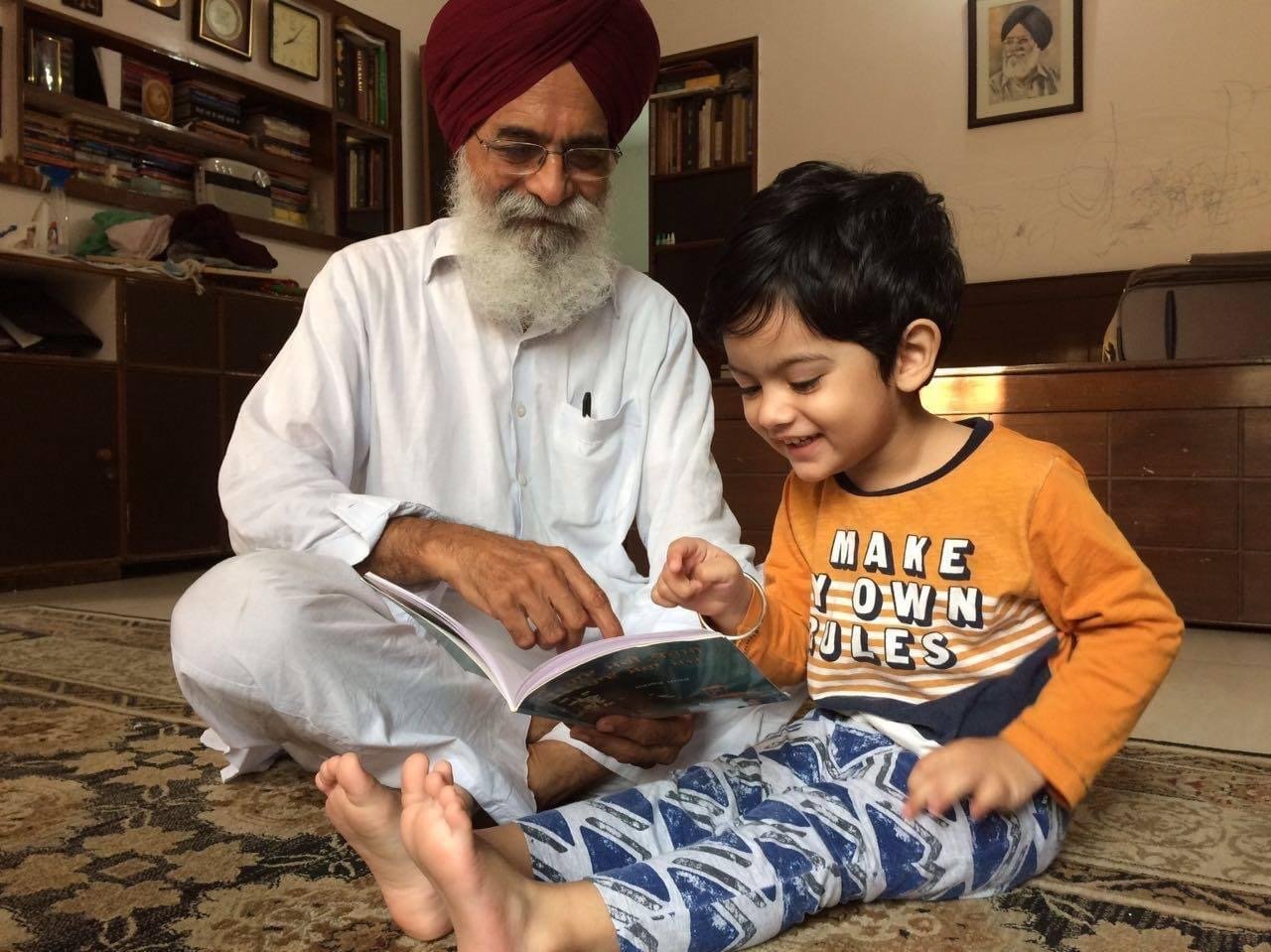
Pritam Singh
Professor Emeritus in Economics
Oxford Brookes Business School,
Oxford, UK
The global Punjabi community (Punjabis in Indian Punjab, Pakistan Punjab, Punjabis living in the other states of India and Pakistan, and Punjabi living outside India and Pakistan) is mourning today. They are mourning the death of Surjit Pattar (79), the best Punjabi poet of our modern times after Shiv Kumar Batalvi (1936-1973). His death is also being mourned by lovers of poetry in many other languages in which Pattar’s poetic work had been translated.
Though Surjit Pattar and I knew each other for a long time but gotproperly connected for the first time and eventually became friends when a Chandigarh/Mohali based Punjabi academic Dr Amandeep Kaur Brar invited me to speak as a keynote speaker and him to preside over a seminar on Punjabi language and culture in 2020. Dr Joga Singh from Patiala and Parminder Sodhi from Japan were also invited as speakers. We all had memorable exchange of views and ideas on the challenges facing Punjabi language. We all agreed on the need to learn many languages in today’s world where people migrate to many countries with languages different from Punjabi but we also emphasised that within Indian and Pakistani Punjab, it is important to have the primary school education in mother tongue Punjabi because the worldwide research on language and cognition shows that children are more creative when they have the facility to learn about the world through their mother tongue. Once they have grasped their mother tongue, they are also more equipped to learn other languages because despite each language being rooted in its distinct environment and culture, there is a fundamental structural similarity between all languages as mode of communication between human beings. Additionally, the Punjabis living outside East and West Punjab should try to have their children learn Punjabi as a language to keep the future generations connected with the culture and heritage of their parents and grandparents.
We met last time over a wonderful tea drinking session in Ludhiana during my last visit to Punjab in 2023. This enjoyable session stretched into many hours. I was pleasantly surprised andfelt humbled when Pattar Sahib shared with me that he regularly read my articles carried by the Tribune group. We talked about how intellectuals and poets influence each other even when they are not consciously aware of this influence. He was particularlypleased when I told him that his poem ‘Eh Baat Niri Enni Hi Nahin’ (This dialogue/struggle was not merely that) had directly helped me in understanding the strength of the farmers movement against the farm laws brought in by the BJP government. I had used the word ‘hond’ (existence) to characterise that movement as an existentialist struggle against agro-business corporations’ attack not only on the economic interests of the peasantry but also on their rural culture, civilisation, and heritage. I was interviewed by Sidharth Bhatia of The Wire on this understanding of the farmers movement The Wire: The Wire News India, Latest News,News from India, Politics, External Affairs, Science, Economics, Gender and Culture. He felt touched to know that his poetic creativity had played such an important catalytic role in spurring the intellectual perception of the farmers movement. I reflected on this poem again in the Mukhband I wrote for the book Kisani Sangharsh: Sadi Da Kav Sangharsh which was a collection of representative poems on the farmers movement edited by Dalvir Kaur. I characterised this poem as ‘Kisan Sangharsh naal juri ik mahan kavita’ and pointed to the link between this poem and my publications on the farmers movement.
As our tea drinking session came to end, he gave me a signed copy of his latest anthology of poems as a symbol of our friendship.
We collaborated later in three projects that were led by the eminent Ludhiana based photographer Harpreet Sandhu. One was a documentary on the Bassian Kothi heritage museum where the British had kept the young Dalip Singh for one night after robbing him off the legitimate claim he had on his father Maharaja Ranjit Singh’s Punjabi empire. We were both interviewed for this documentary. The second project was also a documentary for which we both were again interviewed. It was on the historic importance of the Attari railway station as a symbol of the link between two parts of the undivided pre-1947 Punjab and of the future potential of trade and people to people relations between the two divided parts of Punjab. The third project was a pictorial book ‘Spiritual Journey of Guru Tegh Bahadur’ prepared by Harpreet for which I wrote the Foreword and Preface, and Surjit Pattar wrote a message along with many other luminaries from Punjab and the UK.
I could not have imagined when we met in 2023 that the present he gave me of his book will remain the most treasured symbol of our friendship. Its importance will grow with the passage of time.

Dr. Gurdev S. Chandi says
The memories related to the friendship with Surjit Patar, in a literary way, discussing the contemporary problems being faced by the Punjab and Punjabiat is a significant work done by Dr Paritam Singh. This is a great work done by you, Gurbaj Brar Ji.
Parminder Sodhi says
Well written article about the poet.I agree that contemporary writers influence each other.